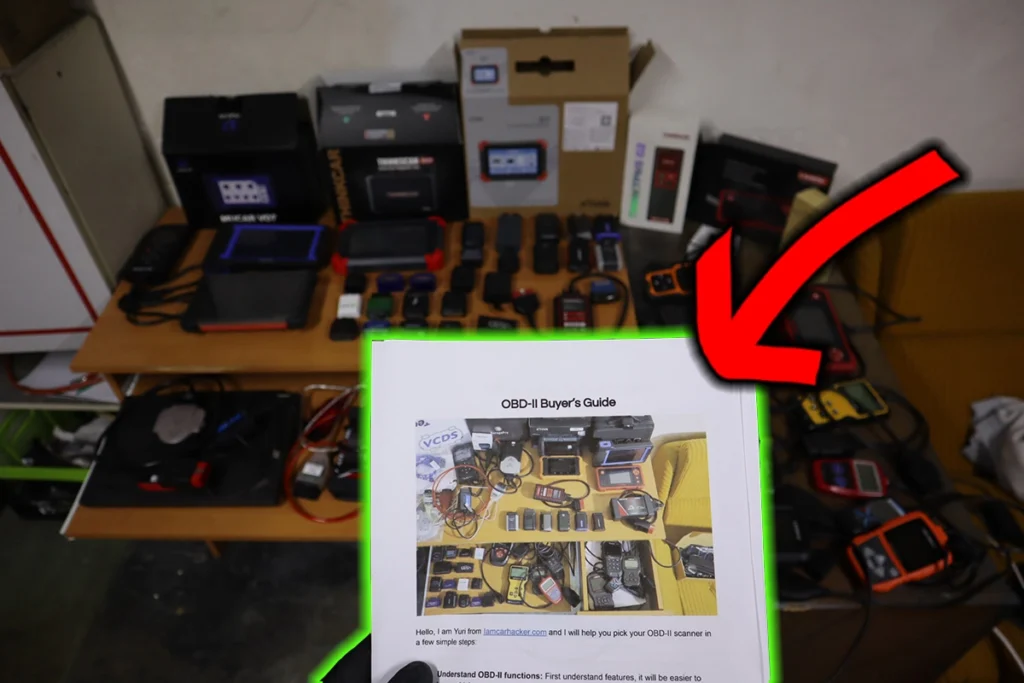The code P0173 Fuel trim malfunction (Bank 2) is telling you that there is something wrong with your stoichiometric ratio and your PCM is having trouble achieving the perfect 14.7:1 air/fuel ratio even with the help of the fuel trims. I have studied several vehicles with this code to give you not just dry descriptions, but also real fixes that solved this problem.
P0173 quick overview
| Meaning | P0173: Fuel Trim Malfunction (Bank 2) |
| Is it serious? | Yes, this code indicates that the engine is either running too rich or too lean on Bank 2, which can lead to poor performance, increased emissions, and potential engine damage if not addressed. |
| Possible causes | -Faulty or dirty Mass Air Flow (MAF) sensor -Vacuum leaks -Faulty oxygen (O2) sensors -Fuel pressure issues -Clogged fuel injectors -Exhaust leaks -Faulty Engine Control Module (ECM) |
| How to diagnose? | Inspect Fuel Trims: Look at the short-term and long-term fuel trims to see if they are outside the acceptable range (+/-10%). High positive trims may indicate a vacuum leak, while high negative trims could suggest too much fuel. Check MAF Sensor: Verify the MAF sensor’s operation, clean it if dirty, and check the wiring. Replace it if necessary. Inspect for Vacuum Leaks: Perform a smoke test or use a scan tool to monitor for leaks that might affect air-fuel ratio. Test Oxygen Sensors: Check the oxygen sensor’s response by creating lean or rich conditions and seeing if the sensor readings change accordingly. Measure Fuel Pressure: Ensure the fuel pressure is within the manufacturer’s specifications, both at idle and under load. Compare Bank 1 and Bank 2: Use the live data from both banks to identify any discrepancies that could help locate the fault. |
P0173 Meaning
The P0173 code means your car’s engine isn’t getting the right mix of fuel and air on one side of the engine (Bank 2). This can happen if there’s too much air or not enough fuel, often due to a dirty sensor or a leak. It’s important to fix this so your car runs smoothly and doesn’t damage the engine over time.
Free PDF: How to choose OBD2 scanner

I’ve made you a free PDF to choose the OBD2 scanner in 5 minutes.
✅ Which OBD2 scanner is best?
✅ Which type should you get (DIY, Pro, Hobby)
✅ What is the best scanner for the exact brand/feature (e.g best for BMW)
✅ How to get a Bi-Directional tool for as cheap as $40
✅ Discount coupons for scanners
PDF is 100% free and it is designed to help you pick a scanner in less than a few minutes! Not a boring 50-page guide.
Just tell me where to send it.
Case study: P0170 and P0173 solutions
The codes P0170 and P0173 are essentially the same code, just for different banks. Bank 1 and Bank 2 are engine head 1 and engine head 2. You might have only Bank 1 if you have an engine with one head (for example classic 4-cylinder).
If your car is powered by a V-shaped engine, you have 2 Banks and the diagnosis of P0170 and P0173 is even easier for you. That is because you can compare Bank 1 and Bank 2 data. If only one bank has a fuel trim malfunction, the problem must be in a component that affects only one bank. For example, the fuel injectors in that bank could be an issue, but not the fuel pump since it pumps gas to both banks.
According to my study, the most common cause was faulty or dirty MAF (mass airflow sensor) which was causing the lean condition. Read about specific cases that were use to came to this conclusion:
P0170 Mercedes
Car #1: 1998 Mercedes-Benz ML320 3.2L
Problem: Check engine, P0170
Fix: This old service post received an answer from MB Technician advising that the most common cause for this issue on Mercedes is the MAF (mass airflow) sensor which can read all the air coming into the engine, resulting in the high fuel trim reading. Replacing the MAF sensor indeed fixed the issue.
Car #2: 1998 Mercedes-Benz C280 2.8L
Problem: Check engine, P0170, P0173
Fix: This time the issue was present on both banks and again the fix is the same as for the previous Mercedes. Replace the MAF sensor. Also don’t forget to reset the fuel trims or PCM if possible with your scan tool.
Car #3: 1996 Mercedes-Benz C220 2.2L
Problem: Check engine, P0170
Fix: Mercedes are common victims of the P0170, P0173 code but it looks very similar so far. Illuminated check engine light, but no other symptoms or driveability issues what so ever. The fix was also done by replacing MAF sensor.
Car #4: 1998 Mercedes-Benz C230 2.3L
Problem: Check engine, P0170
Fix: This car had also some automatic transmission shifting issues, and it wasn’t able to shift some gears under heavy load. The only code stored is P0170. Both issues went away after replacing the MAF sensor.
Car #5: 1999 Mercedes-Benz C230 Kompressor 2.3L
Problem: Check engine, P0170
Fix: Once again the symptoms are similar to others the technician replaced the MAF sensor and it did fix the issue but only for about a month. What to do when replacing MAF didn’t work to solve P0170? This Mercedes model apart from others has a PCV system that needed to be cleaned to stop contaminating the new MAF sensor with oil.
P0170 kia
Car: 1997 Kia Sephia GS 1.8L
Problem: Hesitation, Poor Fuel Economy, Check engine, P0170
Fix: The issue described seems to be related to a problematic fuel trim reading of -16.3%. This could indicate a potential problem with the car’s engine performance, likely caused by poor grounding, a faulty wire harness splice, or disrupted wire connections. The suggested steps aim to address these issues and bring the fuel trim within the optimal range of -7 to 7, along with ensuring the MAF (Mass Air Flow) is around 3.0gm/s for proper functioning. Cleaning the PCM and battery ground helped solve the issue.
P0170 Mazda
Car #1: 1998 Mazda Protege DX 1.5L
Problem: Check engine, P0170
Fix: The technician received good advice on possible faults in the fuel delivery system that could be causing this problem. And after testing the fuel pressure, which couldn’t keep high enough, it was clear that the fault is hiding in the fuel system. Fixed by changing the fuel pressure regulator.
Car #2: 1996 Mazda Protege ES
Problem: Check engine, P0170, Rich condition
Fix: Let’s look into another Mazda Protege with the same fault code. Will the fix be the same as the previous one? No, because the fuel pressure on this protege was good and wasn’t dropping which would indicate fault/leaks in the system. MAF sensor diagnosis detected a damaged ground wire for the mass airflow sensor. Cheap fix.
P0170 Subaru
Car #1: Subaru Forester 2.5L
Problem: Poor Idle Quality, Hesitation, Surge, Stall, Check engine, P0170
Fix: The technician tried replacing the fuel pressure regulator after seeing a fuel pressure little of the specified values and checking the MAF sensor which seemed to be working fine. The only clue was -20% short-term fuel trim and 0 long-term which is weird behavior indicating that the vehicle is having issues getting to that 14.7:1 air/fuel ratio. The upstream air/fuel sensor was the issue, giving the PCM the wrong data. Fixed by replacing the front O2 sensor.
P0170 Toyota/Lexus
Car #1: Toyota Tacoma DLX 2.4L
Problem: No Start, MIL Lamp on, Check engine light, P0170
Fix: The technician replaced a bunch of parts from oxygen sensors to spark plugs and ignition coils but nothing would fix the issue. The car also showed unusual fuel trim readings LTFT +30% and STFT +8%, indicating lean condition. Fixed by the most common fix, replacing the MAF sensor.
Car #2 Lexus GS300 3.0L
Problem: Check engine light, P0170
Fix: Both banks showed a high long-term fuel trim (Bank 1 +17% and Bank 2 +23%), indicating a lean condition caused by something that affects both banks. That was the MAF sensor and vacuum leak. Fixed by replacing the hose causing vacuum leak and cleaning the MAF sensor.
P0170/P0173 BMW
Car #1: 1999 BMW 740iL 4.4L
Problem: Hesitation, Surge, Misfire, Check engine light, P0170, P0173, P0139
Fix: The engine pops in the intake manifold when under heavy load. The technician forgot to share the fuel trims reading, but I would suspect there were in the acceptable range. Fixed by replacing the MAF sensor.
P0170/P0173 Audi
Car #1: 1996 Audi A4 2.8L
Problem: Check engine light, P0170, P0173,
Fix: Most of the P0173 and P0170 codes are solved by replacing the MAF sensor. The common symptom is long-term or short-term fuel trim way over the +-10% acceptable range. This Audi was the same and the same part was causing the issue. The MAF (mass airflow) sensor.
P0170/P0173 Hyundai
Car #1: 2006 Hyundai Tucson GLS 2.7L
Problem: Check engine light, P0170, P0173,
Fix: Same symptoms as in the other cases, but the car was throwing these codes after the MAF sensor replacement. The issue was hiding in the aftermarket part. A lot of engine components and sensors replaced by aftermarket units will cause “fault codes without symptoms” issues. Fixed by replacing with OEM MAF sensor.
P0170/P0173 Land Rover
Car #1: 2005 Land Rover Range Rover Sport Supercharged 4.2L
Problem: Check engine light, P0170, P0173,
Fix: Very similar case to Hyundai before, but this time the OEM MAF sensor didn’t fix the issue. The funny thing is the new sensor came in faulty and after replacing it with another unit, the car was fixed. Not all new cars will come in working condition!
Free PDF: How to choose OBD2 scanner

I’ve made you a free PDF to choose the OBD2 scanner in 5 minutes.
✅ Which OBD2 scanner is best?
✅ Which type should you get (DIY, Pro, Hobby)
✅ What is the best scanner for the exact brand/feature (e.g best for BMW)
✅ How to get a Bi-Directional tool for as cheap as $40
✅ Discount coupons for scanners
PDF is 100% free and it is designed to help you pick a scanner in less than a few minutes! Not a boring 50-page guide.
Just tell me where to send it.

Hi, I am Juraj “Yuri” Lukacko. I got frustrated by unhelpful and scammy mechanics, so I decided to learn everything about car diagnostics myself. I test dozens of new car diagnostic tools every month along with learning new strategies to fix and customize cars. About Juraj Lukacko (Yuri)